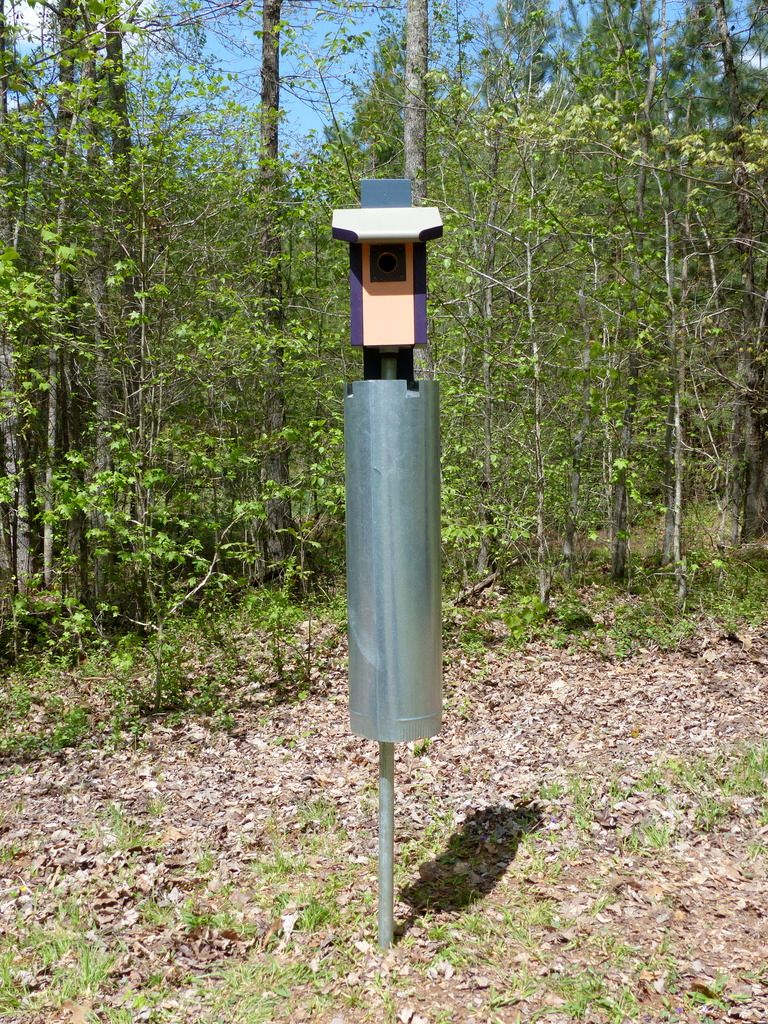Blackwater
Twelve Pointer
My resident pair of bluebirds have been raising in the same box for their 7th year now and I think they've about played out their string.
Last year she fledged four from the first laying, abandoned three eggs from the second batch during a long hot spell, and then laid 3 more for the final go round but only two hatched from that batch.
This spring she built and laid eggs fairly early due to the early spring and the young fledged nearly a week before I expected them to, only staying in the box 11 days after hatching. Turns out there was only one of them and one other unhatched egg in the nest. When I was sure the nest was empty I cleaned it out and two days later she started building a new nest. The male has been feeding her at the hole for five days now so she is definitely setting eggs again.
I guess my question is whether she might be running out of eggs much like a laying hen does. I've read that birds are only equipped with just so many eggs and when they're all laid that's it. I was afraid due to her age that she wouldn't make it through the winter and a new pair might take over but she appears to be soldiering on. During the winter I had as many as 12 bluebirds here in the yard for brief periods and 8 during most of the winter, but they've all sought different digs after the resident male about wore himself out chasing them relentlessly.
Any wisdom anyone can impart concerning their habits?
Last year she fledged four from the first laying, abandoned three eggs from the second batch during a long hot spell, and then laid 3 more for the final go round but only two hatched from that batch.
This spring she built and laid eggs fairly early due to the early spring and the young fledged nearly a week before I expected them to, only staying in the box 11 days after hatching. Turns out there was only one of them and one other unhatched egg in the nest. When I was sure the nest was empty I cleaned it out and two days later she started building a new nest. The male has been feeding her at the hole for five days now so she is definitely setting eggs again.
I guess my question is whether she might be running out of eggs much like a laying hen does. I've read that birds are only equipped with just so many eggs and when they're all laid that's it. I was afraid due to her age that she wouldn't make it through the winter and a new pair might take over but she appears to be soldiering on. During the winter I had as many as 12 bluebirds here in the yard for brief periods and 8 during most of the winter, but they've all sought different digs after the resident male about wore himself out chasing them relentlessly.
Any wisdom anyone can impart concerning their habits?






